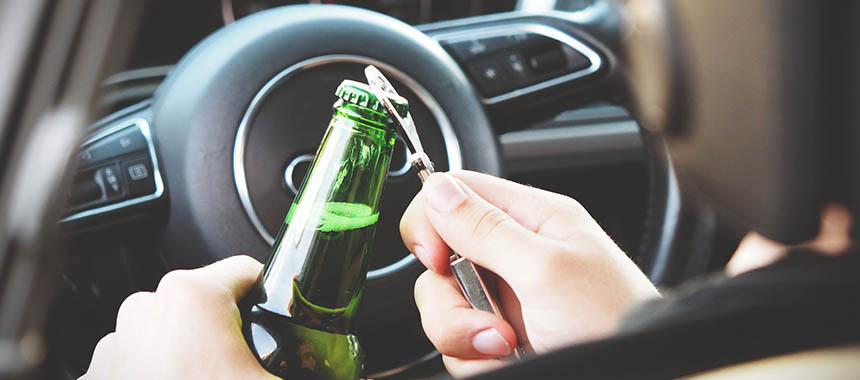By now, you’ve probably heard of both a DUI and a DWI. But you may also be wondering, what is the difference between the two? Is one more serious than the other? Do the terms differ across states? And what else do you need to know about these offenses?
To help you better understand it all, let’s discuss the difference between a DUI and DWI. And yes, both are very serious offenses that can leave you facing life-changing consequences you could be battling for quite some time.
DUI & DWI Defined
DUI and DWI are the most commonly used acronyms to represent impaired driving. DUI stands for “driving under the influence,” while DWI can mean “driving while intoxicated” or “driving while impaired.” These charges can be applied to alcohol, recreational drugs, and prescription drugs because each one can have a major impact on your ability to drive.
States like Maine, Massachusetts, and Rhode Island actually use the acronym OUI. OUI stands for “operating under the influence.” And in some jurisdictions, you’ll find they use OWI, which means “operating while intoxicated.” But it doesn’t end there because there are even more acronyms that are used across the country, such as DWAI (driving while ability impaired) in New York.
While they don’t necessarily agree on the names themselves, most states have set .08% blood alcohol concentration as the legal limit for a DUI or DWI. For commercial drivers, a BAC of .04% can result in a DUI or DWI charge across the nation. And in many cases, the severity of your punishment can increase based on how high your BAC is.
The Definitions Differ Across States
Depending on where you live, each state has a different meaning for both DUI and DWI. And since it can be pretty confusing, it’s important that you educate yourself on the laws regarding drunk driving in the state you live in. This is especially crucial if you live in a location that uses both acronyms to reference impaired driving.
In some locations, a DWI refers to driving while intoxicated and having a blood alcohol concentration (BAC) over the state’s legal limit. And then, they use DUI to refer to a driver being under the influence of alcohol or drugs. What one state may use as the definition could be the complete opposite to another. This means that in certain areas, you could find DUI is specifically for driving under the influence of alcohol, while DWI is for those impaired by alcohol, drugs, or an unknown substance.
There are also cases where a DWI is classified as a more serious charge. In these instances, there are certain conditions you can meet to reduce a DWI to a DUI. However, there are also zero tolerance states that don’t make a distinction between a DUI and DWI and treat them both the same and with the same severity.
One thing all states can agree on? Your ability is too impaired to continue driving, as you risk being a danger to yourself and others. Officers will administer a breathalyzer test, ask you to complete field sobriety tests, and look for other signs of impairment. In some locations, you can even be charged with impaired driving if you don’t meet the BAC levels for legal intoxication.
DUI & DWI in Chicago, Illinois
In the state of Illinois, you can be charged with a DUI if you are found to be driving with a BAC that’s over the legal limit of .08%. First and second-time DUI offenses are typically deemed a misdemeanor, however they can become felonies in certain situations (including if injuries occurred as a result). If convicted of a felony DUI, you’ll be looking at much more severe consequences, larger fines, and a longer jail sentence.
Ultimately, your penalties will be decided based on a number of factors, including: your BAC at the time, your age, whether you were transporting a minor at the time of the stop, and whether or not you have prior DUI convictions. Accidents and injuries increase punishments as well.
No Matter What It’s Called, You Face Serious Consequences
Whether your state calls it a DUI or DWI, you’re going to face some serious consequences that could greatly impact your life going forward. By being convicted of either one of these charges, you’ll likely lose your driver’s license, have to pay expensive fines and court fees, and maybe even spend some time in jail.
Not only that, but you could be looking at a period of probation and community service as well. Certain states may also require you to participate in a drug or alcohol treatment program if convicted. It doesn’t end there though. You could also be left dealing with higher insurance premiums, a breathalyzer on your car, and you may even lose your job as a result. And if you’re under 21 years of age, the punishments you’ll receive can be even more severe.
These consequences are not to be taken lightly. They’re costly and could leave your life in complete disarray. The best thing you can do for yourself and others is to never get behind the wheel while impaired by alcohol, drugs, or prescription medications. Call a friend or family member or use a ride sharing service to ensure you get home safely. It’s not worth risking your life or the lives of others.
And if you do find yourself in a situation where you’re facing DUI or DWI charges, you should always consult with an attorney to determine the best options for you moving forward.
It’s possible that, with experienced legal help, you can lower the penalties you face.


